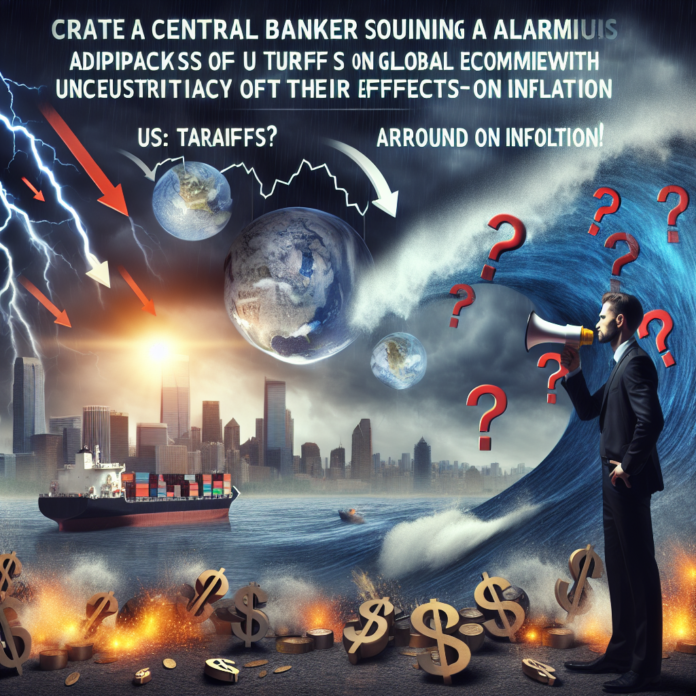ECB’s Escriva Comments on Impact of US Tariffs on Economies and Uncertainty of Inflation Effects
ECB’s Escriva Comments on US Tariffs and Their Economic Impact
In a recent statement, ECB’s Executive Board member, Luis de Guindos, highlighted concerns regarding the potential repercussions of US tariffs on global economies. He emphasized that while these tariffs are likely to have a considerable impact on economic growth, the exact effect on inflation remains ambiguous.
Overview of Tariff Implications
The implementation of tariffs typically leads to increased costs for imported goods, which can subsequently drive up consumer prices. This scenario often results in inflationary pressures within the affected economies. However, Escriva pointed out that the relationship between tariffs and inflation is not straightforward, as various factors, including domestic demand and supply chain adjustments, can influence the overall outcome.
Global Economic Context
The global economy is currently navigating a complex landscape characterized by ongoing geopolitical tensions, supply chain disruptions, and the lingering effects of the COVID-19 pandemic. These factors, combined with the uncertainty surrounding US trade policies, create a challenging environment for economic forecasting.
Potential Consequences for the Eurozone
For the Eurozone, the impact of US tariffs could manifest in several ways. Firstly, European exporters may face reduced demand for their products if US consumers shift towards domestically produced alternatives. Additionally, European businesses that rely on imported materials may see their production costs rise, potentially leading to decreased competitiveness in the global market.
Inflation Outlook
While the direct correlation between tariffs and inflation is complex, experts suggest that the Eurozone may experience varied effects depending on the sectors involved. For instance, industries heavily reliant on imports may see sharper price increases, while others could be less affected. Central banks, including the European Central Bank (ECB), will need to closely monitor these developments to adjust monetary policy as necessary.
Conclusion
In summary, while US tariffs are poised to impact global economies significantly, the implications for inflation remain uncertain. Policymakers, including those at the ECB, must navigate this evolving landscape carefully to mitigate potential adverse effects on economic stability. As the situation unfolds, ongoing analysis and adaptability will be crucial in addressing the challenges posed by trade tensions.


